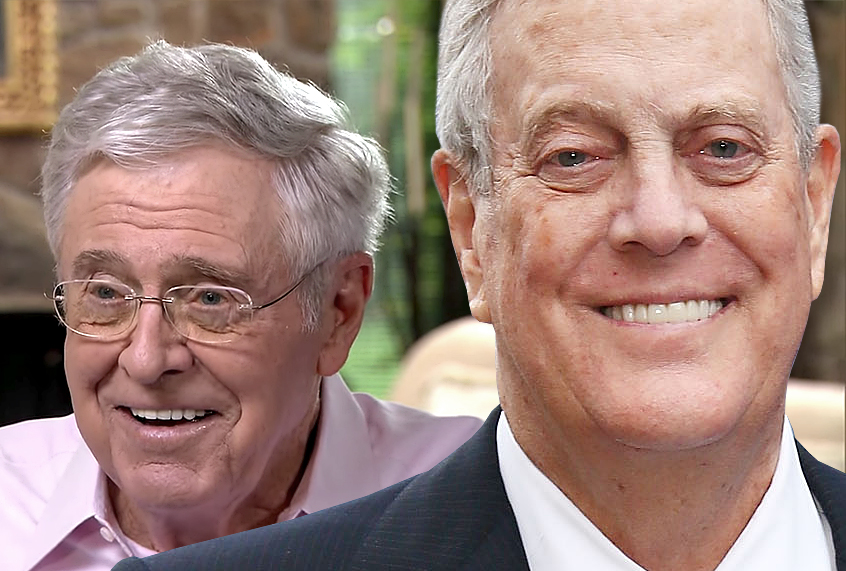After sitting out the 2016 presidential election due to discomfort with Donald Trump’s populist campaign trail rhetoric, the network of conservative super-donors organized by mogul brothers Charles and David Koch announced over the weekend that they’ve made their peace with Trump and intend to help him and other Republicans in elections later this year.
In media interviews, attendees at a Koch-sponsored semi-annual conference for donors (who must commit to giving a minimum of $100,000) indicated that while they would prefer that Trump behave himself like a mature adult, they were more than happy with the policies he has enacted as president.
Rather than the hard-charging populist policies that Trump had backed on the campaign trail — such as a higher minimum wage, increased taxes on “carried interest” income, and withdrawals from major foreign trade treaties — thus far the new administration has hewed remarkably close to the Koch ideal.
In an interview with the Washington Post, Tim Phillips, the long-serving president of Americans for Prosperity, said that he and his colleagues regard 2017 as “the most productive year . . . in the existence of this network,” at least at the federal level. He also claimed that the Koch policy apparatus had been invited to take part “from day one” in formulating the tax code changes that the GOP pushed through in December.
That is not exactly a surprise considering that Marc Short, the former president of the Koch network’s Freedom Partners investment fund, has been serving as the director of legislative affairs from day one of the Trump administration. It also hasn’t exactly harmed the libertarian billionaires that their favorite legislator, Rep. Paul Ryan of Wisconsin, is currently serving as the Speaker of the House.
The conference also attracted a number of Republican politicians who wanted to boost their own donor profiles, including Kentucky Gov. Matt Bevin. “You’re the modern day John Hancocks. You’re a room full of them,” he told them, referring to the famously wealthy signatory to the Declaration of Independence.
Ryan addressed the group via a video message, telling the donors that “your network has been instrumental for allowing us to reach so many milestones that have long been talked about, but until this year, have not been achieved.”
Others present included Rep. Marsha Blackburn of Tennessee, Sen. John Cornyn of Texas, Sen. Thom Tillis of North Carolina, Arizona Gov. Doug Ducey, and Rep. Mark Meadows, chairman of the Freedom Caucus, a far-right group of House members who frequently scuttle Republican leaders’ attempts to compromise on must-pass legislation.
Keeping quiet when Trump says or does something they don’t like seems to be the new modus operandi for the Koch network.
Even on the topics of criminal justice reform and immigration, two of the few issues on which Trump has hewed to his right-populist rhetoric, the Kochs are emphasizing that they want to keep the conversation going with the administration.
“We think this is progress, and we want to be a part of the progress,” Brian Hooks, the president of the Charles Koch Foundation told the Post. “We intend to continue to play a productive role . . . to find a solution to the DREAMers.”
With things mostly patched up between Trump and the (now–fully Trumpified) Republican Party, the Koch brothers announced that they plan to spend up to $400 million in upcoming state and local elections.

